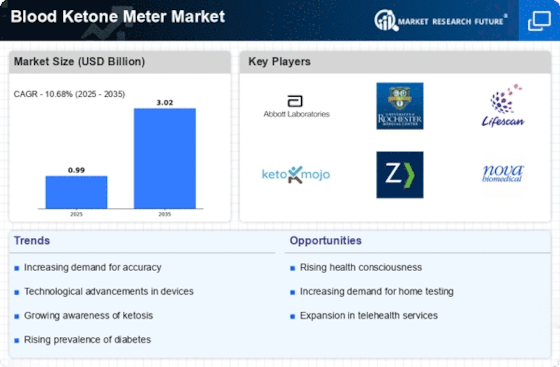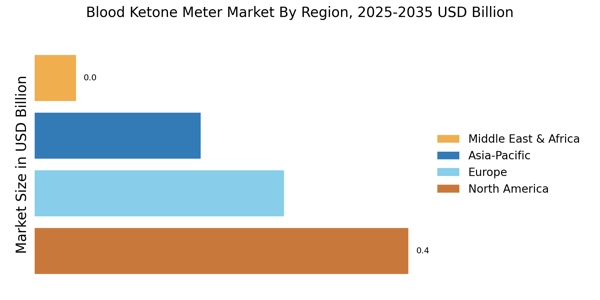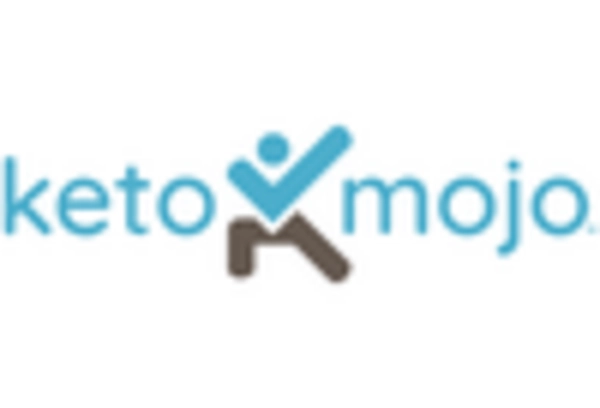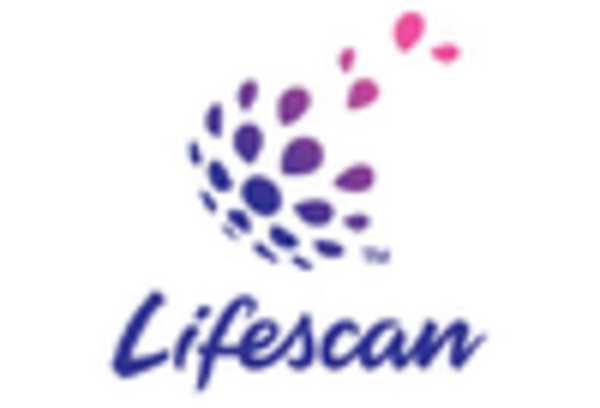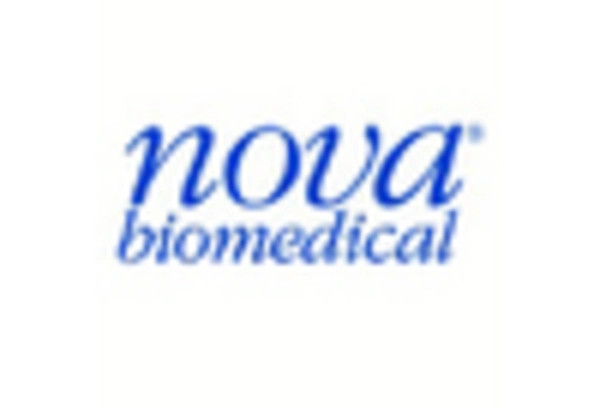Increasing Prevalence of Diabetes
The rising incidence of diabetes worldwide is a primary driver for the Blood Ketone Meter Market. As diabetes becomes more prevalent, the need for effective monitoring tools intensifies. According to recent data, approximately 463 million adults are living with diabetes, a figure projected to rise significantly in the coming years. This growing population necessitates the use of blood ketone meters, which assist in managing blood glucose levels and preventing complications. The Blood Ketone Meter Market is likely to expand as healthcare providers emphasize the importance of regular monitoring for diabetic patients. Furthermore, the increasing awareness of diabetes management strategies among patients is expected to further fuel demand for these devices.
Growing Awareness of Ketogenic Diets
The rising popularity of ketogenic diets is emerging as a significant driver for the Blood Ketone Meter Market. As more individuals adopt low-carbohydrate, high-fat diets for weight loss and health benefits, the need for monitoring ketone levels becomes essential. Blood ketone meters provide users with the ability to track their ketone levels accurately, ensuring they remain within the desired range for effective diet management. Market Research Future suggests that the ketogenic diet market is expanding rapidly, with a notable increase in consumer interest. This trend is likely to boost the demand for blood ketone meters, as individuals seek reliable tools to support their dietary choices and health goals.
Rising Demand for Home Healthcare Solutions
The increasing preference for home healthcare solutions is significantly influencing the Blood Ketone Meter Market. Patients are increasingly seeking convenient and efficient ways to monitor their health from the comfort of their homes. This trend is driven by a desire for autonomy in health management and the need to reduce hospital visits. Blood ketone meters are becoming essential tools for individuals managing diabetes and other metabolic disorders at home. The market data indicates that the home healthcare segment is expected to grow substantially, with a projected CAGR of over 8% in the next five years. This shift towards home-based monitoring solutions is likely to enhance the accessibility and adoption of blood ketone meters.
Technological Innovations in Monitoring Devices
Technological advancements play a crucial role in shaping the Blood Ketone Meter Market. Innovations such as continuous glucose monitoring systems and smartphone integration are enhancing the functionality and user-friendliness of blood ketone meters. These devices are becoming more accurate, portable, and easier to use, which appeals to a broader audience. The market is witnessing a shift towards smart devices that not only measure blood ketone levels but also provide real-time data analysis and personalized health insights. This trend is supported by a growing investment in research and development, which is expected to propel the Blood Ketone Meter Market forward. As technology continues to evolve, the potential for new features and improved accuracy may attract more consumers.
Supportive Government Initiatives and Regulations
Government initiatives aimed at improving healthcare access and promoting diabetes management are positively impacting the Blood Ketone Meter Market. Various health organizations are advocating for better monitoring solutions for diabetic patients, which includes the use of blood ketone meters. Regulatory bodies are also establishing guidelines to ensure the safety and efficacy of these devices, fostering consumer confidence. The market is likely to benefit from increased funding for diabetes research and public health campaigns that emphasize the importance of regular monitoring. As governments continue to support initiatives that enhance healthcare outcomes, the Blood Ketone Meter Market is expected to experience growth driven by these favorable policies.


